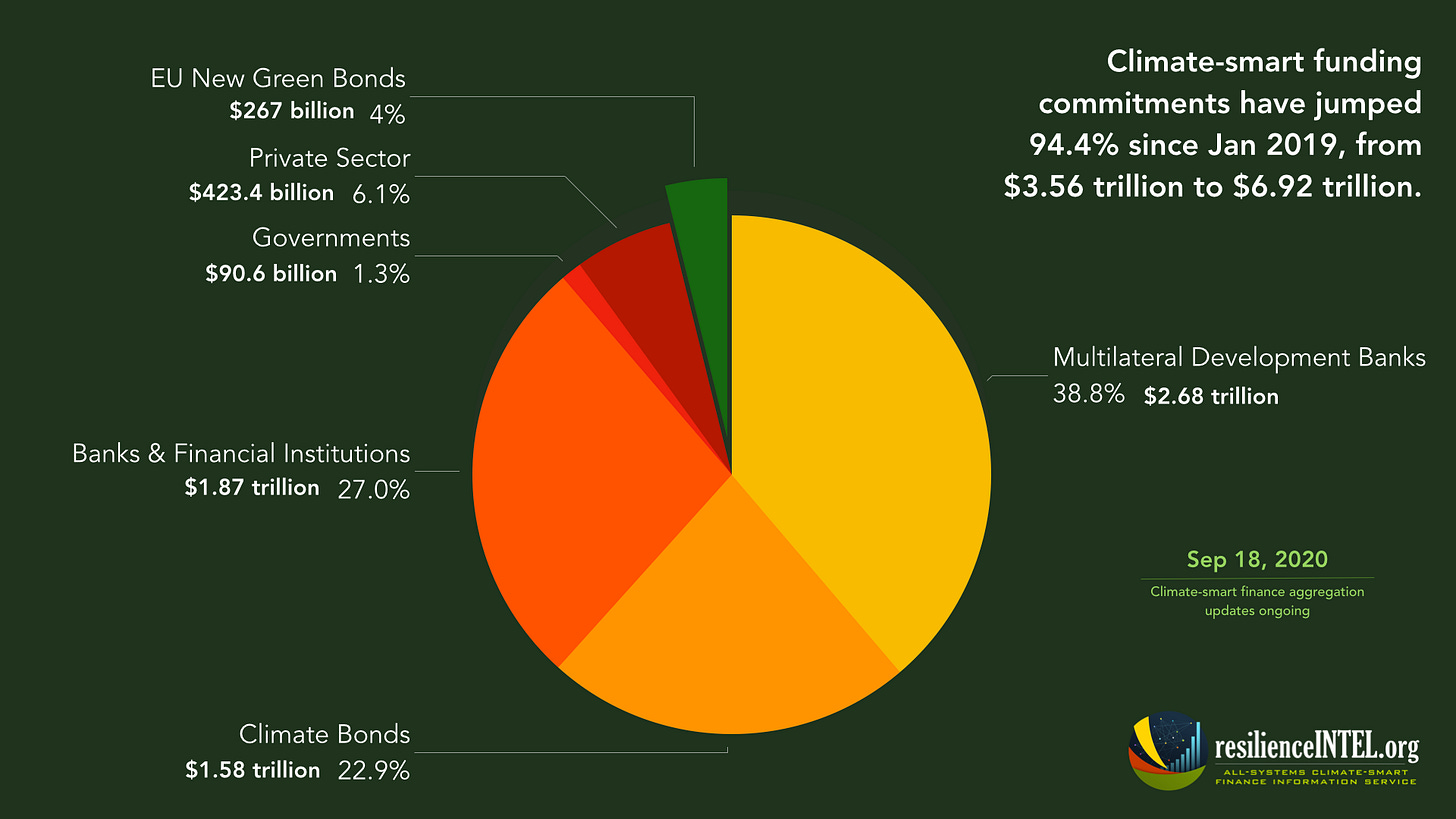Building resilience intelligence matters
Understanding of converging & compounding risks must shape the future of finance & decision-making
In September 2018, we launched the Resilience Intel Charter—outlining a practical approach to addressing this fundamental challenge:
The erosion of health and resilience in natural systems adds cost and risk across whole economies. A lack of resilience intelligence undermines real value in all areas.
‘Resilience intelligence’ is an overall term for the work of assessing how effectively we are future-proofing our businesses and our societies.

In the Charter, we called for connecting diverse constellations of observational data systems with decision-making systems, including mainstream financial data systems, in order to:
Show the resilience value of any kind of spending or financial instrument.
Build science-based resilience intelligence, across whole economies, to provide actionable insight to financial and political decision-makers.
Inform economy-wide national climate action plans (ENCAP), leveraging the catalytic value added from locally rooted clean development and cross-sector collaboration.
Incentivize climate-smart agricultural practices, sustainable stewardship of water resources (including the upstream and downstream components of a health ocean economy), clean air, and other core supports for a healthy human relationship to natural systems.
Catalyze public-private partnerships to ensure ongoing expanded collaboration for higher-resolution integration of Earth systems insights into economic analyses and knowledge-sharing systems.
Stimulate new areas of mainstream banking activity intended to support the expansion of business models that harness and build Resilience Intelligence and/or Resilience Value.
We have seen the total amount of climate-smart finance committed expand dramatically since then. 2 years after the Charter launched, commitments tracked by Resilience Intel had nearly doubled.
In 2021, the Resilience Intel initiative will shift to tracking and grading deployment of these funds. A critical core element of this work is the mapping of known needed connections between Earth science data systems and financial and socio-economic data systems.
You have a right to know whether the decisions you make, in your day to day life, make it more likely or less likely life-sustaining natural systems will remain healthy and resilient. Only when we come to understand these connections will we really understand the health and resilience of our relationship to Nature, and to all of the value it generates for us.
Science-driven resilience planning is not about big, remote institutions making decisions for you; it is about you having the tools you need, in your everyday life, to have the best chance at being part of a healthy, sustainable future.
Read the full Resilience Intel Charter and get more updates at:
Key links and reports:



